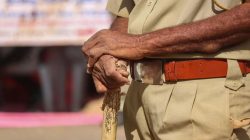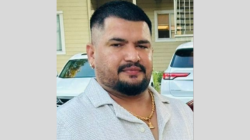A Journey to Angola and a Message of Hope
Prince Harry recently embarked on a solo trip to Angola, where he reflected on the lasting impact of landmines and the importance of protecting future generations. The visit was particularly significant as it marked 28 years since his mother, Princess Diana, had also traveled to the country. As a patron of the Halo Trust, a charity dedicated to clearing landmines, Harry used this opportunity to connect with local communities and raise awareness about the dangers these devices pose.
During his visit, Harry spoke directly to children in the village of Cuito Cuanavale, which is located near Africa’s largest minefield. He shared advice in Portuguese, urging them to “Stop, go back and tell your elders.” This message emphasized the importance of caution and education in preventing tragedies caused by landmines.
The official website of the Duke and Duchess of Sussex highlighted Harry’s reflections on the trip, describing it as an effort to honor his mother’s legacy and draw global attention to the ongoing threat of landmines. He expressed deep sorrow for the children living in such dangerous conditions, stating, “As a father to young children, it breaks my heart to see innocent children still living and playing next to minefields.”
Harry called on donors to support Angola’s efforts in clearing landmines, emphasizing that the issue goes beyond just removing explosives. He said, “This is not just about landmines, it’s about healing the last wounds of war and giving future generations the peace they deserve.” His words underscored the long-term consequences of conflict and the need for continued action.
The Legacy of Landmines in Angola
Since 2008, at least 60,000 people have been killed or injured by landmines in Angola, according to the Halo Trust. Despite significant progress—over 120,000 landmines and 100,000 bombs have been cleared—the threat remains. In the past five years alone, at least 80 Angolans have died from landmine explosions, and more than 1,000 minefields are still yet to be addressed.
Princess Diana’s visit to Angola in 1997 played a pivotal role in bringing international attention to the issue. She walked through a minefield being cleared by the Halo Trust, wearing protective gear and a visor. Her actions helped elevate the anti-landmine campaign globally, and her legacy continues to inspire efforts like Harry’s current mission.
Reconnecting with Family?
Harry’s recent trip to Angola came at a time of tension within the royal family. Just days before the visit, it was reported that top aides of Harry and King Charles met in London, sparking speculation about a potential reconciliation. The two have not spoken since Harry revealed earlier this year that they were no longer on speaking terms.
In his memoir Spare, Harry accused his family of various issues, including claims that his brother, Prince William, had physically attacked him, and that King Charles prioritized his own interests over Harry’s. These allegations have created a rift that has not yet been resolved.
Despite these challenges, Harry’s communications team, including Meredith Maines and Liam Maguire, recently met with the King’s communications secretary, Tobyn Andreae, at a private members’ club in London. The meeting took place near Clarence House, where Charles resides, suggesting a possible step toward dialogue.
While the path to reconciliation remains uncertain, Harry’s work in Angola highlights his commitment to making a positive difference, even in the face of personal and familial struggles. His journey serves as a reminder of the enduring impact of war and the importance of standing together to protect future generations.







